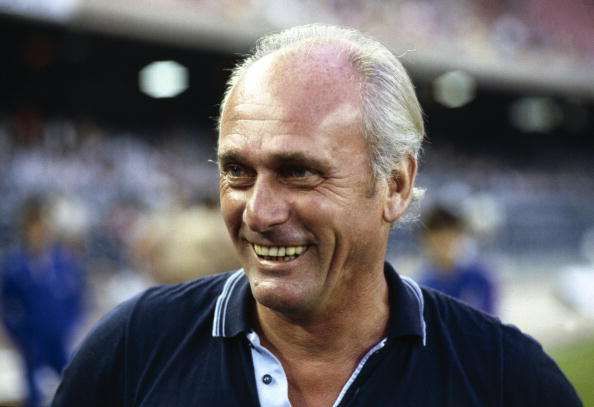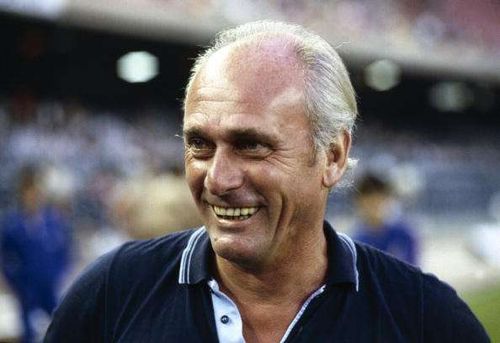
The best managers of all time: #23 Udo Lattek

Legendary Manager Series
Football management can often be a thankless task, more so in today’s times. Win and your players walk away with most of the credit. Lose and your tactics are immediately blamed and questioned. With massive funds flowing into the game, and expectations sky high, patience seems to run thin at clubs, even though at the end of the day only one team can win any given competition.
A lot is on the line, and the top coaches are expected to implement their strategies with immediate effect and bring success. The demands are high, but achievements of a few managers in the game far exceed their peers and sets them apart.
The men that we will be looking at, have changed the way the game is played. They have extracted the last ounce of sweat and drive from their personnel and defied the odds to emerge with a resounding array of success, to leave a mark in the history of the beautiful game.
The list of the 25 best managers of all time is full of extraordinary individuals, men who have left behind a legacy, an inspiration and an ethos that will remain long after they’ve retired. Our primary considerations have been trophies won, modernism brought to the game and consistency.
#23 Udo Lattek
Udo Lattek will always be remembered as one of the best German coaches in their history. He is the only coach to have won all three major European club titles alongside Giovanni Trapattoni, and the only one to have achieved the record with 3 different teams.
Lattek was a striker renowned for his heading ability whose initial career choice was to become a teacher. While he was preparing for a career as a professor though, fate would lead him to eventually turning out for VfL Osnabrück, and he would go on to score an impressive 34 goals in 70 appearances for the lower league German side.
Managerial career
His interest in coaching wasn’t a surprise, but it took Franz Beckenbauer to convince Bayern Munich to give him his first head coach role.
To say that he repaid their faith would be an understatement, as he went on to win 3 Championship titles and the European Cup in 1974 with them. Lattek was renowned for his motivational skills. He was full of energy and was always looking to transmit this to his players, even with sometimes unconventional methods.
Lattek replicated his success at different clubs with ease, and he would win another two league titles with Borussia Monchengladbach and also the UEFA Cup with the side he managed for four years after his Bayern spell. He would also reach the European Cup Final for the second time, only to be defeated by Bob Paisley’s Liverpool side.
Being chosen as the successor of a titan like Helenio Herrera at Barcelona was one of the biggest honours that could be bestowed upon him and he delivered the Catalans the League Cup and the European Cup winners’ cup in his two years there.
Also read: The best managers of all time: #24 Johan Cruyff
His relationship with their glamorous new signing Diego Maradona though was frosty. He refused to give the Argentine wizard any levee and did not think his indiscipline could be forgiven because of his talent. This was a big factor in his ouster from the Spanish side eventually and Lattek would return to Bayern.
Three more League titles would follow as well as two German cups. There was also more heartbreak with another European Cup final defeat, this time in 1987 to Porto in Vienna.
The players he coached is a much distinguished list. Franz Beckenbauer, Sepp Maier, Uli Hoeneß, Paul Breitner, Gerd Müller, Berti Vogts, Lothar Matthäus and Jupp Heynckes are amongst the most revered names in German football.
Lattek would even come out of retirement in true superhero style to save Dortmund from relegation. The club were in a precarious position, and Lattek swooped in for the last five games and got them the points they needed to stay up.
Lattek passed away in February 2015 in Cologne, a day German and world football were united in their mourning.
Bayern chairman Karl-Heinz Rummenigge lauded him as one of the most crucial men in establishing the Bavarians as the prestigious force they are lauded as today. In the annals of Bayern and German football history, Udo Lattek’s spirit will always remain alive.